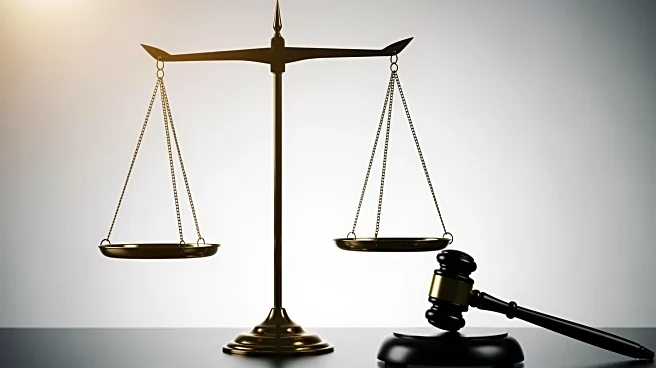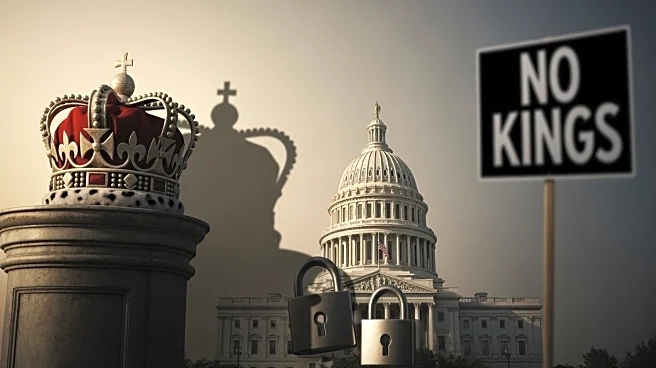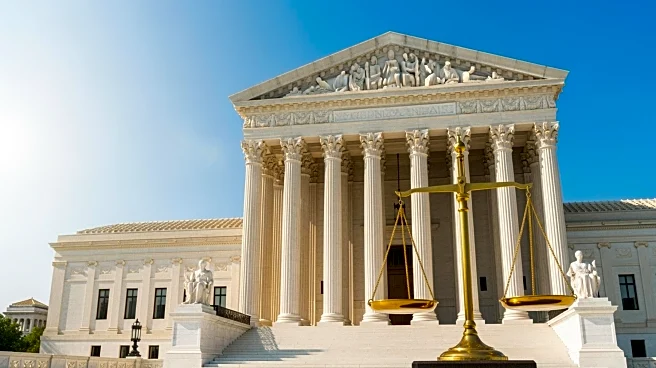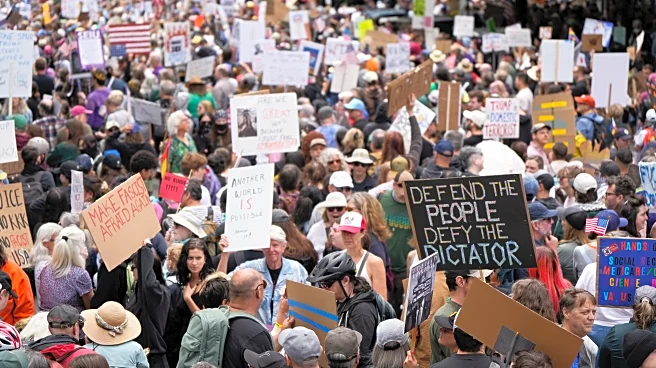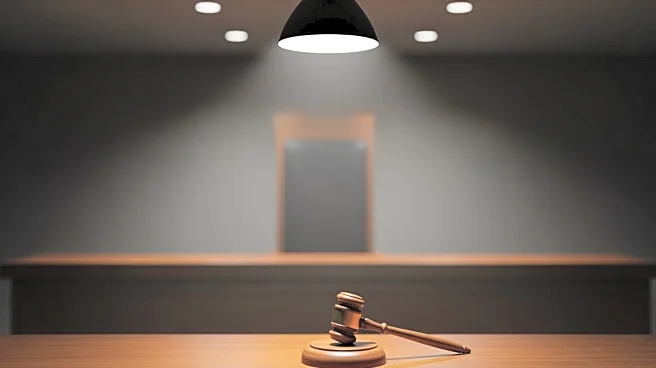What's Happening?
George Santos, a former Congressman recently pardoned by President Trump, has sparked controversy with his remarks during a CNN interview. Santos, who was convicted of fraud, was asked about his plans
to return stolen funds, to which he responded that he would only do so if legally required. He also mentioned his intention to focus on prison reform, drawing from his personal experience. The interview took a surprising turn when Santos defended President Trump's decision to commute his sentence, stating that even if Trump had pardoned Jesus Christ, he would still face criticism. This statement was met with surprise by the interviewer, and the segment concluded shortly thereafter.
Why It's Important?
The pardon of George Santos by President Trump has reignited debates about the use of presidential pardons and their implications for justice and accountability. Critics argue that the decision undermines the legal system by suggesting that political loyalty can outweigh legal consequences. Santos's comments further fuel the controversy, highlighting the polarized views on President Trump's actions. This situation underscores the ongoing tension between political allegiance and ethical governance, with potential impacts on public trust in political institutions and the justice system.
What's Next?
The fallout from Santos's pardon and his subsequent comments may lead to increased scrutiny of presidential pardon powers. Legal experts and political analysts might call for reforms to ensure that pardons are not used to reward political allies. Additionally, Santos's focus on prison reform could attract attention from advocacy groups and policymakers interested in criminal justice reform. The public and media reactions to these developments will likely influence future discussions on the balance between executive power and judicial integrity.
Beyond the Headlines
Santos's comparison of President Trump's critics to those who might criticize a pardon of Jesus Christ raises questions about the use of religious imagery in political discourse. This statement may provoke discussions on the appropriateness of such comparisons and their impact on public perception. Furthermore, the case highlights the broader cultural and ethical dimensions of political rhetoric in the U.S., where religious and historical references are often employed to sway public opinion.
